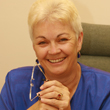 Governments must start encouraging women earlier into study and careers in computing science to address the growing shortages of skilled information technology (IT) professionals, says a senior education researcher at Charles Sturt University (CSU).
Governments must start encouraging women earlier into study and careers in computing science to address the growing shortages of skilled information technology (IT) professionals, says a senior education researcher at Charles Sturt University (CSU). “In Australia, as in many developed countries, women’s rates of participation in tertiary study and careers in IT and computing science are significantly low,” says Professor Toni Downes, researcher and Dean of CSU’s Faculty of Education.
“Given the current shortage of skilled computing professionals, the wealth of creativity and ingenuity that is not being harnessed in this important industry is something we need to address.
“Between 2002 and 2007, there was a decline in participation by boys and girls in computing and IT subjects in NSW, Victoria and South Australia in the final two years of secondary school. However, girls, who were only there in relatively small proportions in 2002, were walking away in even greater numbers than the boys. It is too late to address this problem at the end of school,” Professor Downes says.
Professor Downes was a senior member of a research team that focussed on the middle secondary years, when students select their subjects for their senior years of study and when they establish their interests in particular subjects and careers.
“In our survey of 1 334 Year 10 students from regional and metropolitan high schools across NSW, Victoria and South Australia, only 94 of the 739 girls – or 13 per cent - indicated they would study computing and IT subjects in their senior years.”
The research also found that:
· over 70 per cent of the students surveyed believe they learn more about computers at home than at school;
· girls who perceive their own ability with computers to be high are no more likely than those who see themselves as 'just average' to enrol in computing and IT subjects in Years 11 and 12;
· male students are more likely than female students to say they are good at computer subjects (53 per cent of males compared with 35 per cent of female students).
· computer literacy is high among both boys and girls, with nearly 93 per cent of all students having access to the Internet at home; 91 per cent using computers to do their homework; and 64 per cent sending emails and text messages to friends.
"Overall, students commented positively on collaborative, hands on computing and IT projects that related to their particular areas of interest. For girls, this includes tasks that allow computers to be used as a creative and communicative tool," Professor Downes says.
“After 2000, the focus of the Year 12 subject in NSW shifted from a combination of computer literacy and foundational computing studies to greater emphasis on computing as an academic discipline, which I believe resulted in a decline in enrolments across NSW, espcially among females.
“After 2000, the focus of the Year 12 subject in NSW shifted from a combination of computer literacy and foundational computing studies to greater emphasis on computing as an academic discipline, which I believe resulted in a decline in enrolments across NSW, espcially among females.
“This has also resulted in a greater gender imbalance in the students taking senior computing, with an increasing proportion of male students taking Year 12 computing and IT subjects.”
Professor Downes was part of the Gender and IT research project, funded under the federal Australian Research Council (ARC) Linkage Project scheme, and conducted by the University of Western Sydney, CSU and Deakin University.
The findings of the project have been published in a book, Gender and IT: Ongoing challenges for computing and Information Technology education in Australian secondary schools. The book will be officially launched at Gleebooks in Sydney, NSW from 6pm, Monday 5 May, by the Hon. Daryl Melham, the Federal Member for Banks,




Social
Explore the world of social